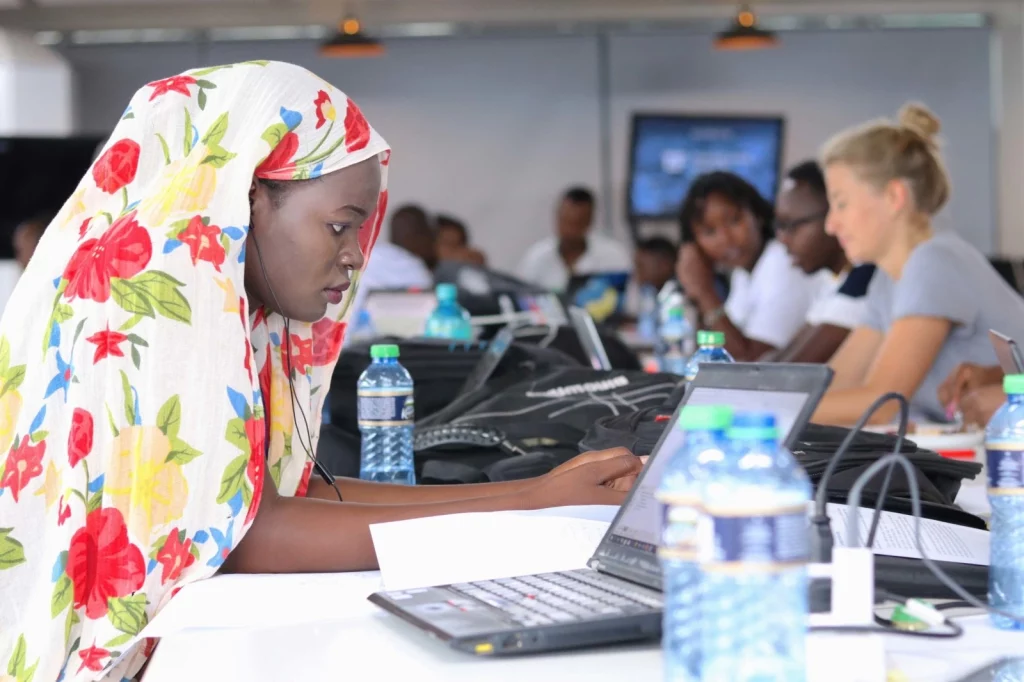ONLY 6% OF THE UK POPULATION RECOGNISE REFUGEES’ SKILLSETS
When it comes to how refugees, asylum seekers and displaced people can bolster the UK workforce, a staggeringly low number of Brits (6%) consider them to be ‘skilled’ and recognise the full potential these people can bring, as the increasingly competitive race for talent sweeps the nation.
A new study by the humanitarian tech organisation Techfugees reveals over a fifth of the population today (22%) associates refugees with manual labour, cleaning and maintenance (15%) or agriculture (12%). Despite the physical demands of this work, less than 10% of respondents said they would describe refugees or asylum seekers as ‘hard working’ and only 6% would describe them as ‘qualified’ or ‘skilled’.
The 4,000 person study found refugees are misunderstood by the UK population largely because of media portrayals. In reality, refugees already make a huge contribution to the UK in every working sector; but the tech sector is one that is often overlooked.
A 2016 study by the Global Entrepreneurship Monitor (GEM) found that people with immigrant backgrounds, including refugees, are three times more likely to be entrepreneurial in the start-up sector than people born and brought up in the UK. Yet only 2% of Brits associate refugees with science or technology jobs, and only 1.8% think of them as working in coding.
Mike Butcher, CEO of Techfugees, says: “In a time when the UK is desperate for talent and key workers, leaving this human potential in limbo and stuck in detention centres is both a human and an economic tragedy for the UK.
“The time it takes to train somebody in basic technology skills has increased rapidly over the past few years. But you’d be astonished how fast it can be to upskill or reskill someone coming to the UK who is deeply motivated to succeed.”
STEREOTYPES REIGN SUPREME
When asked how refugees are portrayed by the press, only 4.4% of people said refugees were presented as hardworking and even less (3.6%) as skilled.
In fact, far from being portrayed as beneficial to the UK workforce and economy, a quarter (22%) of respondents said the media portrays refugees as ‘scroungers’ and 1 in 5 (21%) believe the media portrays refugees as ‘invaders’. ‘Desperate’ (21%), ‘criminals’ (18%) and ‘victims’ (17%) also ranked in the top 5 ways Brits felt refugees are portrayed.
Despite this negative portrayal, more than half of Brits (55%) still believe that refugees should be given the opportunity to enter other countries and be given the opportunity to learn new skills upon arrival (53%).
Amongst the younger generations, there is a wider recognition of the benefits of digital inclusion: 1 in 5 ( 21%) Gen Z (aged 16-24) respondents said they would support digital upskilling vs only 1 in 15 (6%) of those over 55. In general, younger people are more likely to support refugees settling in the UK – compared to their elders, where half (50% of those 55+) said they wouldn’t consider doing anything to support refugees.
When asked what they would do to support refugees, Brits said they would consider teaching them a digital skill such as computing or online banking (12%), teaching them English (20%) and helping them find employment (16%).
“A common talking point against refugees is that they’re coming here to take our jobs. But actually, the overwhelming evidence shows that refugees with tech skills are both contributing to the economy at a high level at a time when Britain is desperate for talent, but are also far more likely to create jobs by becoming entrepreneurs. They don’t take jobs, they make jobs,” Butcher adds.
A COLLECTIVE NETWORK
Techfugees is committed to changing the perception of displaced people: the 21st century migrant is a motivated, technology-oriented person to begin with skills that should be harnessed by their host countries. As part of its mission to drive collective, human and inclusive innovation that empowers displaced people worldwide, Techfugees announced its new brand strategy, last week at London Tech Week.
The organisation will become Techfugees Global: a decentralised humanitarian tech network, implementing scalable solutions across cities, countries and different business verticals, from health, to food, agri-tech and beyond. This move comes as Techfugees strives to facilitate the needs of displaced people globally affected by war, natural disasters, and the effects of climate change.
More information on Techfugees Global is expected to be announced later this year. For additional information, please visit www.techfugees.com or contact the Techfugees PR team at techfugees@manifest.group.
